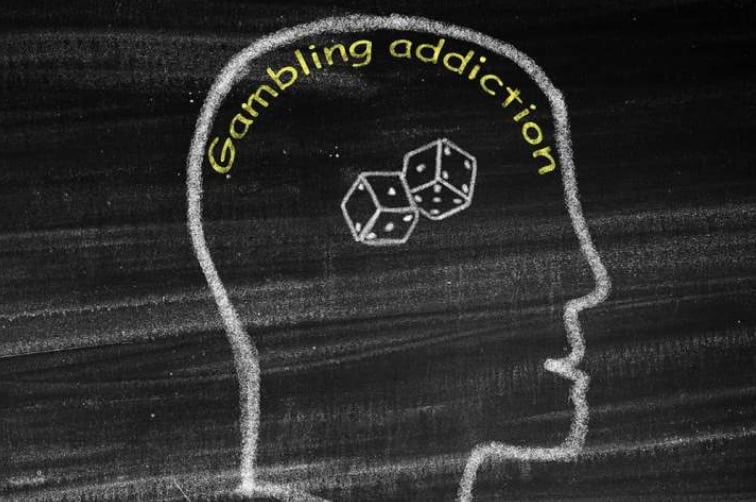The ripple effects of gambling addiction extend far beyond the gambler, deeply affecting family members. This complex issue calls for a delicate yet knowledgeable response.
Families often struggle in silence, unsure how to support their loved one while maintaining their own well-being. Recognizing these impacts and learning to navigate them with integrity is key. Let’s delve into the nuances of how gambling addiction alters family life and relationships.
Family Financial Issues
Gambling addiction often gives rise to severe financial issues within families. The gambler might use funds meant for essential expenses like rent or mortgage, plunging the family into debt. This reckless spending can result in inability to pay bills, sometimes even risking homelessness.
Partners of gamblers are frequently caught in a cycle of covering debts and rescuing their loved ones from financial crises. These efforts, though well-meaning, often exacerbate the family’s monetary problems, increasing the risk of foreclosure or bankruptcy.
Children in these families also suffer. They may face instability and lack essentials due to the financial turmoil caused by the addiction. The stress of financial insecurity can significantly impact their well-being and development.
Overall, gambling addiction not only drains family finances but also strains the relationships between family members, often leading to conflict and distress.

Trust Issues
A common issue due to gambling addiction is the lack of trust between partners. This arises when the gambler lies about their financial situation and gambling habits. This dishonesty creates a rift between partners, as the non-gambling partner struggles to reconcile the reality with the lies.
The situation is further complicated if the gambler resorts to stealing money from family members to fuel their addiction. Such acts of betrayal can have a profound impact on family dynamics, leading to a breakdown in trust that can be challenging to repair.
As a result, children are also affected as they witness the erosion of trust between their parents. This can lead to feelings of insecurity and mistrust in their own relationships.
Relational Issues
Problem gambling significantly alters the dynamics within a family, impacting how members relate to each other. The gambler’s preoccupation with gambling often leads to neglect of familial roles and responsibilities, disrupting the usual patterns of family life. This neglect can manifest in various ways, such as missing important family events, not fulfilling parental duties, or being emotionally unavailable.
The stress and financial strain caused by gambling can lead to increased conflicts and arguments, especially over money matters. Trust issues, as previously discussed, further complicate relationships, making open and honest communication difficult.
Children in these families may feel alienated or unimportant, leading to strained parent-child relationships. They might also take on roles beyond their years, like caring for younger siblings or trying to mediate between parents.
Developing Other Addictions
Individuals struggling with gambling addiction are at a heightened risk of developing other addictions. The thrill of gambling triggers the brain’s reward system, releasing dopamine, a neurotransmitter that amplifies feelings of pleasure. This connection can lead to a relentless pursuit of activities that stimulate dopamine release.
As a result, some turn to alcohol or substance abuse. The immediate gratification or escape these substances provide can be appealing to those already accustomed to the dopamine surge from gambling. This can create a dangerous cycle of dependency, where one addiction feeds into another, exacerbating the individual’s overall health and well-being challenges.
The pursuit of these additional addictive behaviors can have a lasting impact on both the individual and their family.
Here are five key aspects in which additional addictive behaviors can impact a family:
- Increased financial strain: Additional addictions, like substance abuse, demand more funds, deepening the family’s debt.
- Emotional distress: Witnessing a loved one struggle with multiple addictions heightens the family’s stress and anxiety levels.
- Neglect of responsibilities: The individual may neglect familial duties, leaving partners to manage household and parenting roles alone.
- Social isolation: The family might withdraw from social networks due to shame or to hide the situation, leading to isolation.
- Health risks: Exposure to substance abuse can introduce health hazards to the home, affecting all family members.
Legal Consequences
Legal repercussions are a serious concern in cases of gambling addiction, affecting not just the individual but the entire family. Financial desperation may drive some to commit crimes like theft or fraud to fund their gambling. Additionally, if substance abuse accompanies the gambling addiction, this can also result in legal issues related to possession or use of illegal substances.
These legal entanglements bring about a host of challenges for the family. First, the financial burden of legal fees and possible fines adds to the already strained family finances. The family’s reputation can suffer, leading to social stigma and isolation.
If incarceration is involved, the family unit can be disrupted, leaving partners and children to cope with the absence of a family member. Moreover, the stress and uncertainty of legal proceedings can take a significant emotional toll on all family members.
Child Abuse and Neglect
Problem gambling significantly raises the risk of child abuse and neglect. In families where gambling addiction is present, the focus on gambling often leads to a lack of attention and care towards children.
This neglect can manifest in various forms, from inadequate provision of basic needs to emotional neglect. Additionally, the stress and frustration stemming from gambling problems can unfortunately escalate into abusive behavior.
Furthermore, growing up in such an environment increases the likelihood that children will develop gambling problems in adulthood. They may view gambling as a normal coping mechanism or be drawn to it in an attempt to understand or connect with the gambling parent. This perpetuates a cycle of gambling addiction from one generation to the next.
Emotional Effects of Gambling Addiction on the Family
The emotional consequences within a family affected by gambling addiction are complex and deep-rooted. These stem from a range of behaviors including hiding gambling activities, financial deceit, stealing, incurring debts, and family neglect.
Such actions often lead to persistent conflicts and arguments between partners, creating a charged and unstable home environment. This tension not only strains adult relationships but also significantly affects children, who may feel caught in the crossfire, leading to a lack of emotional security and a sense of safety.
Common emotions present in these families include:
- Guilt
- Shame
- Anger
- Anxiety
- Fear
- Regret
- Resentment
- Depression
- Insecurity
Psychological Distress
Studies indicate a heightened risk of psychological distress among those with gambling disorders. This distress can manifest as thoughts of self-harm or suicide, including attempts and in some cases, completed suicides. These intense mental health struggles often stem from feelings of shame, overwhelming financial debt, and a sense of hopelessness.
The psychological impact extends to the family as well. Witnessing a loved one in such profound distress can be traumatic, creating a pervasive atmosphere of worry and fear. It can strain familial bonds, as family members may feel helpless or unsure of how to provide support. The overall family unity is compromised, as the focus shifts to coping with the crisis.
Here are some common signs that someone might be experiencing suicidal thoughts:
- Feelings of despair or lacking a sense of purpose in life
- Talking about being a burden to others
- Withdrawing or isolating from family and friends
- Displaying extreme mood swings
- Talking about wanting to die or to kill oneself
- Sleeping too little or too much
- Acting anxious or agitated; behaving recklessly
Supporting a Family Member with Suicidal Thoughts Due to Gambling Addiction
Supporting a family member with suicidal thoughts stemming from gambling addiction requires a compassionate and proactive approach. It’s important to create a safe and open environment where they feel heard and understood.
Here are key steps to provide support:
- Listen Actively: Give them your full attention. Let them talk about their feelings without judgment.
- Acknowledge Their Pain: Validate their emotions. Understand that their feelings are real and intense.
- Avoid Dismissive Statements: Don’t downplay their distress or suggest they simply ‘get over it’.
- Seek Professional Help: Encourage them to talk to a mental health professional. Offer to help find a therapist or counselor.
- Discuss Treatment Options: Discuss the advantages of therapy and support groups specifically tailored for gambling addiction.
- Create a Safety Plan: Work with them and a professional to develop a safety plan for times of crisis.
- Stay Involved: Regularly check in on them. Show that you care and are there for the long haul.
- Educate Yourself: Learn more about gambling addiction and mental health to better understand their struggle.
- Encourage Healthy Habits: Promote positive lifestyle changes like regular exercise, healthy eating, and sufficient sleep.
- Be Patient and Understanding: Recovery is a journey. Be patient and offer your support throughout.
Moving Forward: Families and Gambling Addiction Recovery
Recovery from gambling addiction as a family unit involves open communication, rebuilding trust, and establishing new, healthier family dynamics. Seeking professional help is crucial as therapists can guide the healing process.
Support groups for families of those with gambling issues create an environment for sharing personal stories and learning effective coping methods. Encouraging the gambler’s treatment and attending family therapy sessions can significantly aid in mending the emotional and relational wounds. Together, families can create a supportive environment, fostering emotional resilience and a hopeful outlook for the future.
Seeking Treatment for Gambling Addiction
Professional guidance can offer tailored strategies to overcome the addiction. This might include therapy to address underlying issues, behavior modification techniques, and learning healthy coping mechanisms.
Treatment options for gambling addiction include:
- Cognitive Behavioral Therapy (CBT)
- Acceptance Commitment Therapy (ACT)
- Group Therapy Sessions
- Individual Counseling
- Support Groups like Gamblers Anonymous
- Inpatient or Outpatient Treatment Programs
- Financial Counseling
- Family Therapy
Gambling Effects On Family FAQs
How does gambling affect people socially?
Gambling can lead to social isolation as individuals prioritize gambling over social interactions. It may also strain relationships with friends and family, leading to a loss of trust and support networks.
How does gambling affect a person’s friends?
Friends may feel neglected or betrayed as gambling takes precedence. Trust issues can arise, especially if the gambler borrows money and fails to repay.
How does gambling affect people financially?
Gambling often leads to significant financial loss, debt accumulation, and misuse of funds meant for essential expenses. This can result in financial instability and hardship.
How does gambling affect your marriage?
Addiction to gambling can put a heavy burden on a marriage, causing financial difficulties, erosion of trust, and emotional distance. This often results in regular disputes, communication breakdowns, and potentially, in extreme situations, leads to separation or divorce.
References:
- https://www.uclahealth.org/news/gambling-addiction-can-cause-psychological-physiological-health-challenges
- https://pubmed.ncbi.nlm.nih.gov/27337693/
- https://www.ncbi.nlm.nih.gov/pmc/articles/PMC9645554/
- https://www.mass.gov/info-details/treatment-recommendations-for-gambling-disorders
- https://gamblersanonymous.org/
Graziella Calleja
Graziella is an expert on the online gambling industry and the crypto casino market. After working with a licensed operator as a support agent, she developed a keen interest in the industry. Her passion for casino gaming led her to start writing guides and reviews for several publications including Basketball Insiders, Business2Community, and Augusta Free Press.Graziella is an expert on the online gambling industry and the crypto casino market. After working with a licensed operator as a support agent, she developed a keen interest in the industry. Her passion for casino gaming led her to start writing guides and reviews for several publications including Basketball Insiders, Business2Community, and Augusta Free Press.View All Posts By Graziella Calleja

